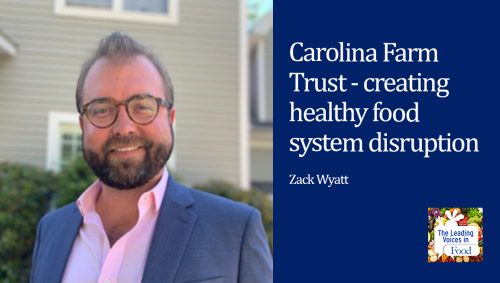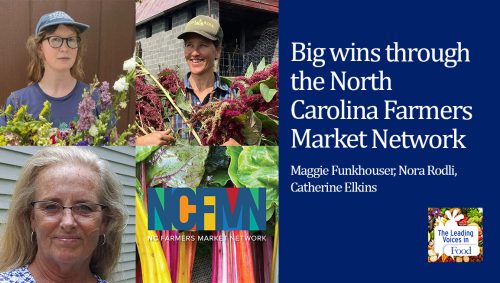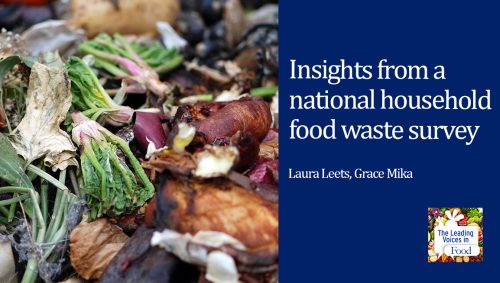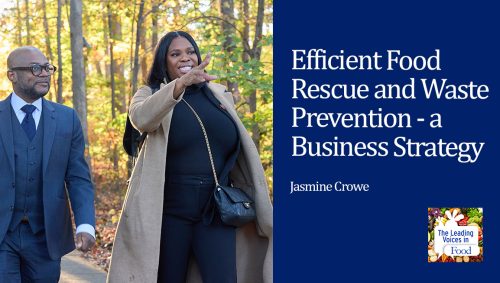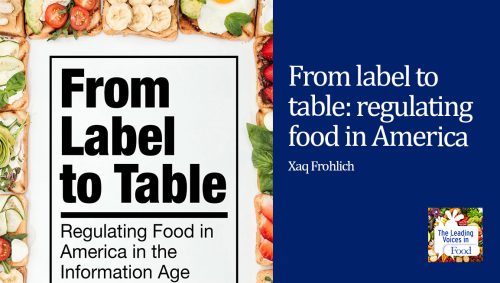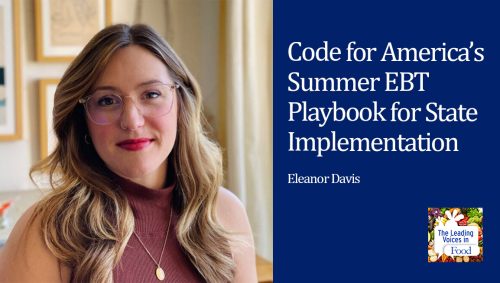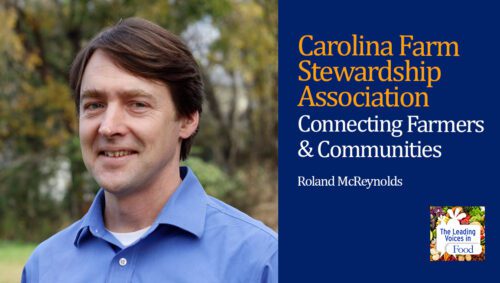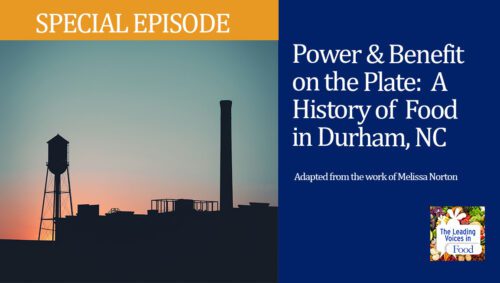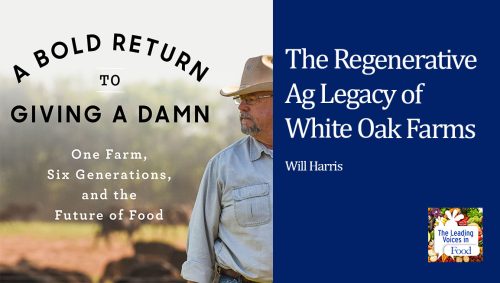The Leading Voices in Food
E174: Down to Earth with NC Farm Bureau’s Shawn Harding
Today, we’re talking with the President of North Carolina Farm Bureau, Shawn Harding. Farm Bureau is the state’s largest farming organization and is often referred to as the voice of North Carolina agriculture. In this interview, we’ll explore the diverse ways this vital association supports North Carolina farmers and growers. I might also say that there are Farm Bureaus in all 50 states, and from what I understand, North Carolina is one of the largest. So it’s a special pleasure to have Shawn with us.
Subscribe: Apple Podcasts | TuneIN | Google Podcasts | SoundCloud | PocketCasts | Radio Public
Tags: Agriculture & Tech | Climate Change, Environment & Food | Community & Economic Development | Food Policy | North Carolina | Voice of Farming |

Shawn Harding was elected president of the North Carolina Farm Bureau in December 2019. Harding grew up and farmed in Beaufort County. He previously served the Farm Bureau in various roles, including president in Beaufort County, member of the state board of directors and state public policy director. He is a graduate of the Agricultural Institute, part of NC State University’s College of Agriculture and Life Sciences.
Interview Summary
I was mentioning before we went live that our center has had a nice relationship with Farm Bureau over a number of years. And one thing that was especially, meaningful to us is with your predecessor, Larry Wooten, and several of his colleagues took us on a tour of farms in Eastern North Carolina. And that was very eye opening and a very moving experience for us to get to talk to farmers and understand a little better. So, I appreciated the work of Farm Bureau before, but especially, after that. So, let’s begin. You became President of the North Carolina Farm Bureau nearly two years ago. And anyone in the agriculture world knows a Farm Bureau but others may know less. Would you mind telling us what Farm Bureau does?
Yes, certainly. As you mentioned earlier on, we often refer ourselves as the voice of agriculture because that’s what we do. We spread the message of farmers and agriculture. And, you know, what’s interesting is our organization started 1936 by farmers who felt like they needed a voice. And in 1936 there were a lot of people on the farm. Now, very few people on the farm, very few people that really understand agriculture. So, we feel like our mission to be that voice for agriculture is more relevant now today than ever before. And we try to stay core to that mission and just spreading the word of our farmers and agriculture and what they do.
I thought I heard that North Carolina Farm Bureau was the second largest in the country. I don’t know if that was correct then or still is, but what explains why North Carolina has such a robust Farm Bureau presence?
Well, in 1936 a group of farmers got together and started this organization and really their mission was just to help farmers but also help rural people to any kind of issues they had. And in 1953, believe it or not way back then they were having trouble getting insurance. And so, we started an insurance company. In order to buy insurance from North Carolina Farm Bureau you had to be a member. And so, you joined and you were able to participate in our insurance company. And it was very successful very helpful for our rural families back then. And thankfully, we’ve been very successful over the years proud of our insurance company. And that’s one of the reasons that we have such a large membership in North Carolina. We just crossed 600,000 members for the first time in our state, which does make us the second largest Farm Bureau in the nation. And so, certainly we have many members who have no connection to agriculture but just enjoy and appreciate our insurance company. So, we’re proud of that but anyone can join North Carolina Farm Bureau. $25 membership. And if you want to support farmers and support our mission certainly anyone can join. Tennessee Farm Bureau is the largest Farm Bureau, our neighbors to the west. And so, we’re looking at how long before we could be number one, but we’ll see how that goes.
Well, good luck. And 600,000 is pretty impressive, I must say. So, I’d like to talk about one particular part of the work that you and your colleagues are doing, your Young Farmer program. And I recall hearing from Bert Pitt in Edgecombe County saying that the average age of farmers in North Carolina is around 67. And farming is so critical to the future. I’d like to hear about the kinds of support and recognition that your Young Farmer program offers to newer generations of farmers.
Thank you for asking about that program. It’s really near and dear to our hearts. I’m a product of the Young Farmer program. Actually, Larry Wooten was a product of the Young Farmer program. And so, we use it as a leadership development program in our organization, but it’s more than just leadership development. Farming can be a very isolated occupation and sometimes you can feel like you’re just out there on your own and don’t have any support. So, one of the great things, I think, our Young Farmer program does, it brings young people together. As you said, there’s not a lot of them in agriculture. And so, it brings them together and they really get to support each other to see, hey, we’ve got some of the same issues. We’re dealing with some of the same things. And so, it’s a real support system for our young people in agriculture. And as you mentioned, I mean, that’s vital with the age of farmers now, but I’m excited, I’m excited about the future. I see young people getting involved in agriculture that are first-generation farmers. So, I think, I often say when I was coming along, it maybe wasn’t cool to be in agriculture, but now it’s a very cool and hip thing to be involved in agriculture. And that’s exciting to me to see young people coming in that haven’t had a history in it.
It’s nice to hear that optimistic note in your voice. And boy, that would be great if young people really do come in with a kind of enthusiasm that you’re seeing in them. So, that’s great. You mentioned your own experience in farming. Could you tell us a little bit more about that? What kind of a farm did you grow up on and what kind of farming did you do yourself?
Sure, absolutely. I grew up in Eastern North Carolina, in Beaufort County. A little town called Chocowinity and my grandfather was farming and my father actually, came into farming in the seventies. And so, we grew up on a farm, typical Eastern North Carolina farm that was a tobacco and grain operation. That’s kind of what most everybody did a little bit of. And we were small farmers and just enjoy that life. Went to NC State after high school and studied agriculture. And unfortunately, I lost my father the last year of college. And so, you were talking about the age of farmers and certainly, it’s difficult to get started in agriculture as a young person, but I had that opportunity right out of college. And so, started farming early, again, going back to tobacco and grain and doing those kind of things. And working with my brother on the farm. We had a partnership, things were going well. And then we came into the nineties and challenges in the tobacco industry. We had the tobacco buyout that came along in 2004. About that time, my wife had started a little side operation with strawberries and I just I looked at it as an opportunity to change what we were doing on the farm. I saw how many people loved coming to the farm to pick strawberries and learn about what we did in agriculture. And I just thought, I think this is the future. So we stopped growing tobacco. We became a strawberry farm. And then of course, added to the strawberries with blueberries, blackberries, all kinds of fruits and vegetables, and just went direct to the consumer. And thankfully, we were very blessed to be successful in that. The opportunity to be Farm Bureau President obviously, came along and and I thought it was a great opportunity for me but also for my children. I have two boys and back on the farm now that are running the farm. Again, giving them an opportunity to start at a younger age in agriculture, and also giving me an opportunity to do something that I love. And that’s lead this organization and talk about farming. So, that’s a little bit of my story and how I got to where I am and just love agriculture and love what I’m doing.
At the time we’re recording this, we’re about to enter the full swing of the strawberry season. So, I was really excited to hear you talk about strawberries. More than that, it’s interesting to hear about the transition of your farm and the historical things that shape that. So, let’s get back to Farm Bureau. And I know that Farm Bureau does a lot to bring agriculture concerns to policy makers, both at the state level in North Carolina and the national level. And that helps farmers prepare to make the case for North Carolina agriculture. Could you talk about the advocacy programming that you do?
It’s really one of the top line things that we’re involved in. I mentioned that we’re the voice of agriculture and that can mean a lot of different things. As I said, we want to share with the public about what farmers do. And part of that public is our legislators who many have been separated from the farm for several generations and don’t really understand modern agriculture. So, quite a task there. And so, we stay involved in that. I’m very proud of our advocacy efforts. The other part I would say on that is certainly we have a lobbying team here at Farm Bureau but what we do, what is special about Farm Bureau is we use the term grassroots operation you mentioned we’re in every county in North Carolina. And we encourage our volunteer farmers to advocate for what they do. What we found is when you walk in an office as a lobbyist and then they expect you to be at a certain place, but when you take an actual farmer to a legislator, to a Congressman, to a Senator, they appreciate that. And so, we really challenge our young farmers, our women, all our farmers, all our volunteers, to be involved in advocacy for what they do. And that’s what I’m proud of as an organization. Our policies come from our people. So, I sit in this role as President, but I don’t set the policy for the Farm Bureau. Our people set the policy. And so, we have a policy development process that we go through every year and they really tell us what’s important to them. So, I think it’s a really fascinating process that was drawn up many years ago and it works really well.
I can see how farmers would be such important advocacy voices. When we were doing the tour of farms that I mentioned before, we found the farmers to be talented, passionate but also very humble people. So, you can see how they would have a special role in this. It was interesting to hear you talk about that. I’d like to ask you also about regenerative agriculture. We’ve done a number of podcasts with farmers and others from around the country involved in regenerative agriculture. And they’ve talked about techniques such as diverse, no-till, rob crow techniques, mob grazing for livestock and other things to improve the environment and produce food at the same time even though to improve the nutrient profile in food and to help be more resilient in the face of changing weather conditions. So, how do you think North Carolina itself is poised to deal with regenerative agriculture and those advances?
I’m, of course, very biased. I believe we have some of the best farmers, in the country, in the world, at North Carolina that are resilient, adaptive and always looking for the right thing to do. And so, when talk about climate change and how agriculture can be a part of that then I think we’re at the forefront of it. Many people think about this issue and we all have opinions and things we feel like we ought to do and need to do. And that’s great, but I don’t think people really think about nobody deals with the climate more than farmers. We deal with the storms, we deal with cold, the heat, everything that comes along with it. So, we’re on the front lines of this and certainly, we’re ready to look at practices that will help the climate change issue. And I think, farmers are always ready to do that, that with a caveat also, always of saying we have to stay in business. We have to have practices that will keep us on the farm so that we can do the positive things we need to do. But we certainly feel like there’s a lot of great research going on right now to say, here’s some things that we can do to help reverse this climate change issue and agriculture can play a big role in that. And so, I think our farmers stand ready to be on the front lines of that issue.
That sounds really impressive because you’re talking about the influence of climate on the agriculture world and then in turn the influence of agriculture on climate and that relationship arrow going in both directions is such an important part of the overall picture that we’re facing in the future. So, it’s nice to know that North Carolina farmers, in particular, are focusing on that. And speaking of that, the farm bill is such an important piece of legislation nationally, and obviously, for North Carolina farmers as well. I’d love to hear your thoughts on what North Carolina needs from this important piece of legislation.
Well, certainly when you think about the farm bill that’s coming up, we will be engaged in that heavily. Have staff members here that are already working on it now to try to say, you know, what’s our priority. I think if we want to talk about priorities in the farm bill and for the last couple of farm bills, I think this has sort of been the direction our country has gone is crop insurance. We’ve just said, agriculture’s such a volatile business to be in with climate again as we talked about and storms that the safety net that needs to be there for our farmers with crop insurance is a really important piece for us. And so, we’ll continue to talk about that as we head into this farm bill negotiation, the next bill, because that really is what helps keep our farmers on the farm when these devastating weather events happen. And we certainly feel like that’s important for our country. We’ve all seen what’s happened the last few years with just turmoil around the world. And so, we say food policy is good security policy, and so, we need to have a good food security policy. And that starts with keeping our farmers on the farm and being successful. And that obviously, crop insurance is the biggest part of that farm bill that we’ll be looking at.
I’m happy you mentioned the vulnerability that farmers face because I think most people who don’t dive deeply into agriculture don’t realize the number of vulnerabilities that farmers have. There are the weather vulnerabilities we talked about today. There are unexpected market fluctuations. There are complicated relationships with the companies that buy their products. All kinds of things go on in that world that make it a very precarious position that farmers are in. And it’s amazing that they’re able to tolerate that and still prevail generation after generation. So, it says a lot about the kind of mindset and personalities of farmers doesn’t it?
We often talk about it’s a love, it is a passion. You mentioned seeing that with some of our farmers and it has to be. I mean, just this year, we’ve seen prices for inputs rise by three times. And certainly, prices of commodities have risen. And some people are saying, well, that equals out. But what I’m trying to tell the general public is we just tripled the risk that we’re putting in the ground. With the seed this spring. We just tripled the risk, the seed, the cost of fertilizer. And we don’t know what we’ll get out of it. So, that’s what agriculture is. You mentioned that it’s a lot of volatility, but we do it, we love it. I think most farmers feel like it’s their responsibility to help feed the world. And so, we want to continue to do that. So, we appreciate the partnerships and people understanding what we do, but there’s a lot of risk in it. Absolutely.
I was impressed on the farm tour we were doing with some of the things that you just mentioned. One, was how passionate the farmers were about their work and how much they felt they were performing a very important service for the world, but also how many generations of a family there tended to be on farms and how the farmers felt that they wanted to turn the farm over to children in better shape than they had inherited it themselves. It was very interesting way of thinking. So, that passion I must really impress you all the time, too.
Absolutely, and as I mentioned my story, I’m sort of living it. I go home now every other weekend, see my boys and the pride they have in growing our things and selling it to local consumers. And there is a pride that goes along with that just to see that, to see your, leaving the next generation in a better place. And that’s what our farms and farmers are trying to do to just leave it better than we found it. And that goes with our families. But it also goes with our land. You know, the water the air, the soil, that’s how we make our living. So, we’re trying to leave it better than we found it.

